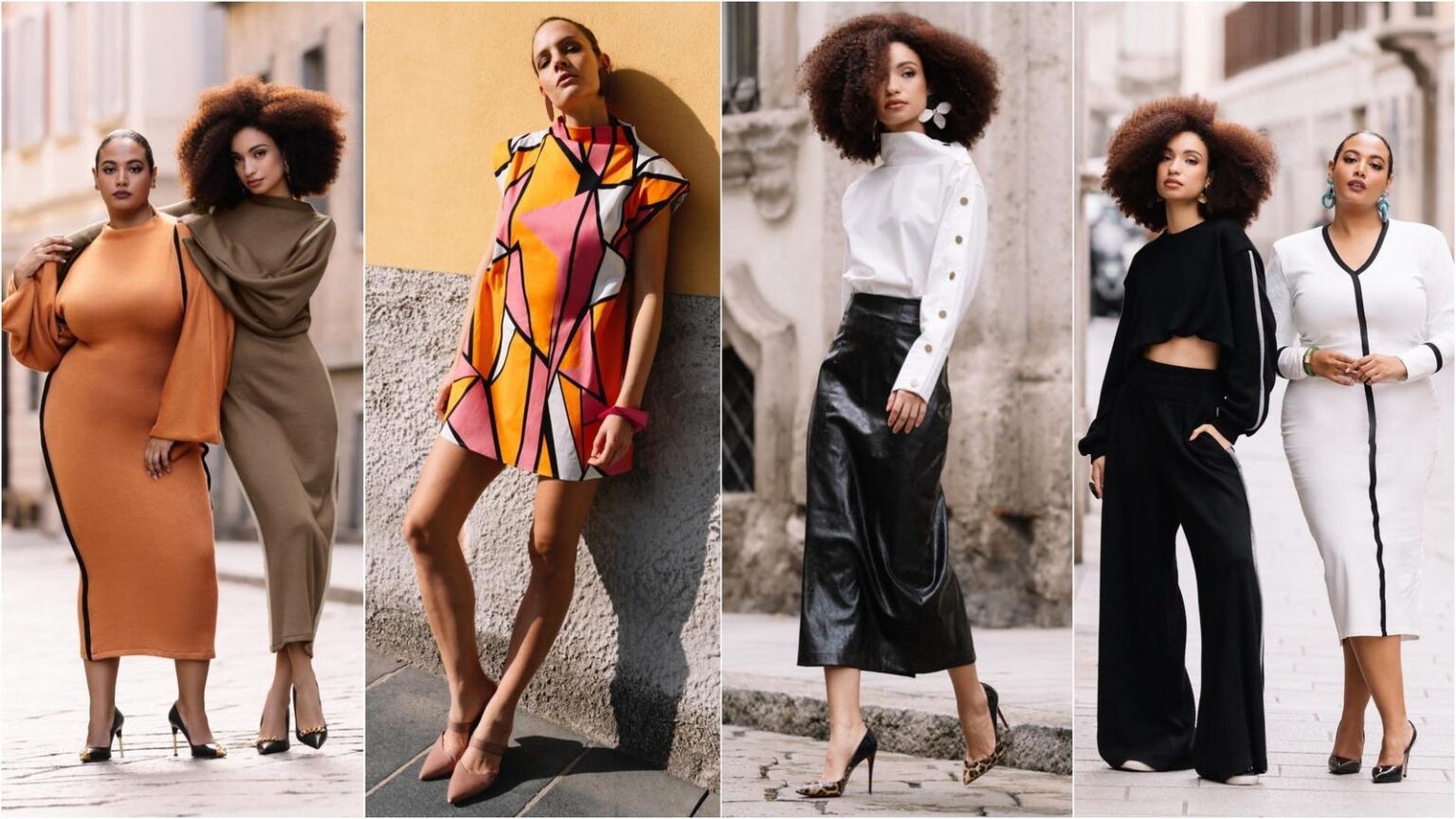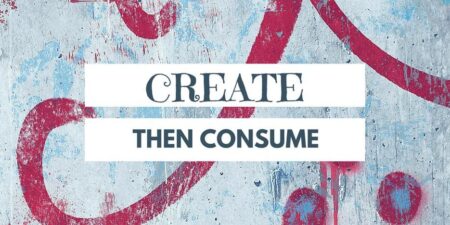“If I had to do a world word cloud,” fashion designer Ukonwa Ojo said to me, “for the emails and the texts that we receive from our customers, the number one word you would see is ‘compliments.’ I receive so many compliments.”
Looking at her designs for Ada & Edith, which Ojo founded and is designer for, it is obvious why they get such consistently glowing feedback. Ukonwa designs objectively beautiful clothing. By blending traditional, ultra-feminine silhouettes with design elements that are decidedly future-focused, each garment achieves a playful sense of balance. With the caveat that I loved basically all of Ada & Edith’s most recent winter collection, the fabric manipulation on the Sebastian shirt is nothing less than exquisite. It is easy to imagine pieces from the brand’s upcoming Spring/Summer collection garnering the same response. But there is much more to apparel than simple beauty, we spend our lives with it. Without hyperbole, clothing us during almost every moment of our entire lives.
“I can’t imagine all the most incredible moments in our history without the clothing,” Ukonwa Ojo said. “Think about your wedding without your clothing,” Ojo said. “Think about the Oscars or the Grammys. I can’t imagine any of the kind of pivotal moments in our lives without design. Clothing is such a big part of the moment, sometimes it makes a moment. I think it’s incredibly special to be a part of that, understanding that you’re creating that moment for other people. It’s really humbling.”
Before we go any further, let me offer a little background. This is a Huston-based brand, and Ojo named it after her mother, Adaora Edith. I asked her to tell me about that decision. It was obviously a choice that mattered a lot personally. Without saying or hearing a word, I already knew how much the name meant, how central it was to the ethos of the company, and that it spilled over into Ojo’s aesthetic decisions.
“I always knew that I wanted to do something to honor my mom in a really special way,” Ojo told me. “I really feel like she gave up her dream because of us.” An American citizen today, Ukonwa and her family are from Nigeria, where she was born. Ojo is one of five siblings, all of whom Adaora lovingly raised on her own. Determined to try and make her fashion dreams real, when Ojo was young her mother took an infant daughter with her to London so that she could attend design school.
“I don’t even know how she did that,” Ojo told me. “But she was able to pull that off. She could have gone to fashion school in Nigeria, she went in London for a reason, she had this ambition to create a global brand. She came back from London and opened her own local boutique in Lagos. But it never could be the global fashion brand that she wanted it to be. That was just the reality of the life that she lived.”
This is not a new story, every day on all points on thr globe, people set aside their dreams when they have to. But in this family’s version, there is such a happy ending-in-progress, a real American Dream come true, and it is so very beautiful to see. Today, Ojo works with her sisters, and when the brand was still a developing idea, they all sat down and talked about the idea of naming the business ‘Ada & Edith.’
“As her daughters, we thought it would be cool to give that gift back to her,” Ojo explained to me. “To create the global brand that she always wished she could create. Now, we get to create that on her behalf. Every moment is so special, because that’s our way of giving back to her, for sacrificing her ambition for us.” Ojo smiled, “I like the idea that our ambitions never die. They can live across multiple generations, and still have its full fulfillment.”
Fashion was not Ojo’s first career, she spent decades in the C-suite of some of the world’s biggest name brands. Her CV includes items like Amazon Prime Video & Studios (she was Global Chief Marketing Officer and US General Manager), M.A.C Cosmetics (Global Chief Marketing Officer), Covergirl (Coty Consumer Beauty and Global Brand President), so it’s pretty (objectively) clear that she is in possession of some serious business acumen. Speaking with her about this transitional period in her professional life, anyone could see that flexing her creative muscles is something this designer enjoys very much. Even though this is not at all how she’d believed that things were supposed to go.
“When I decided to leave corporate,” Ojo explained, “my husband gave me a gift of slow traveling through Italy, because he knows that it is my favorite country, I love everything about Italy. We didn’t have any itinerary other than we were gonna fly into Milan, and then book our first hotel. The rest wasn’t planned, we were just going to kind of meander through the country and figure it out as we went. It was in Italy that I started to sketch. I really didn’t know that it was in there.”
Ojo told me that, at least as an adult, she had always seen herself as a corporate executive. This wasn’t a bad thing, but eventually it was limiting.
“When I first started,” Ojo said, “I thought, I will be creative director, or kind of the ‘name behind the brand.’ But I would not be the designer. That was my original intent.” The designer laughed, shook her head with a little rueful humor. “I didn’t imagine that my mom had deposited this gift inside of me, but it was in my DNA, almost like a little secret.”
That drawing in Italy convinced Ojo that this was something she could do. That she was already what she wanted to be. She began to understand that she could be one thing while also being something else. She was more and she had room to grow.
“I didn’t even know that that was in there,” she smiled again. “And that’s how this journey began. We did our first launch collection, then we did our fall winter collection. And I’m excited to introduce to the world our spring summer collection.”
I asked Ojo about her processes, about the throughlines she is starting to find in her fashion work. What does she know about people and what they wear? How does that impact the clothing that she makes for her clients and the world?
“I think that I’m a strong believer that we should wear our clothes and our clothes should not wear us. Because I believe that everyone is inherently really beautiful. I almost see clothing as the frame for you to shine through. I describe my design philosophy as bold minimalism. It’s minimalist, but there are elements of boldness, whether it’s from the colors that we choose or the monochromatic nature of it, or it’s the very silhouette, the definition or the very strong attention to detail. I think there are bold elements within it. The idea is that you put it on, and then you’re the hero of the moment.”
“That’s really, really important to me,” Ojo explained, “ that you’re the hero of the moment. So many times, people look at the clothes, and then they get it. It’s really simple and it’s elegant. Then, when they put it on, and they’re like, ‘Oh, my God,’ they’re really surprised by how they look. There’s nothing that gives me more joy in the world, than for her to be the hero. She can walk into the room and just own it and be the hero of the story and be the star of the show. Regardless of how she’s feeling, what size she is, regardless of all of that. Our pieces serve as a frame to really showcase her to the world. And I think of every design from that place.”
As our conversation began to wrap up, I was thinking about all the roles clothing plays in our lives, in Ukonwa Ojo’s, in my own, in all human lives, sort of like something I half remembered from the beginning of our conversation. I asked her a question that has been on my mind a lot lately: when is costume really apparel? And when is the reverse true?
“My point of view is that it’s all costume,” Ojo said to me with a kind laugh, one tinged with the slightest hint of gentle teasing. “I think that depending on how we want people to perceive us, depending on how we’re feeling emotionally, and what energy we want to kind of radiate to the world, we will make a decision about the costume that we wear that day. For me, in all honesty, it really all is costume.”
MORE FROM FORBES
Read the full article here











